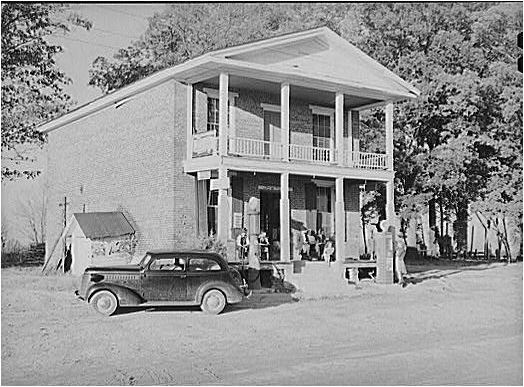Here is an excellent description of these North Carolina stores from Piedmont Plantation by Jean Bradley Anderson (1985) at page four:
General stores in the backcountry were not necessarily to be found in towns; they were quite as likely to be located at important crossroads on main-travelled roads. They stocked everything a farmer might want for his farm, house, and family--from tools, hardware, harness, and lumber, to molasses, medicine, cloth goods, and coffins. The customers could pay up their accounts in cash if they had any, but were more likely to pay in raw materials--tobacco, wheat, corn, feathers, tallow, or beeswax--products which the merchant in turn could sell at his store or transport to his factor as payment on account. . . .
With the arrival of the automobile, these stores became the first gasoline filling and general automotive service stations, and some survive today. Unfortunately, many have been abandoned and demolished as road and shopping patterns changed.
The purpose of this section is to list the community stores of Caswell County and to explore their history. A few stores survive and are poignant reminders of the past.
